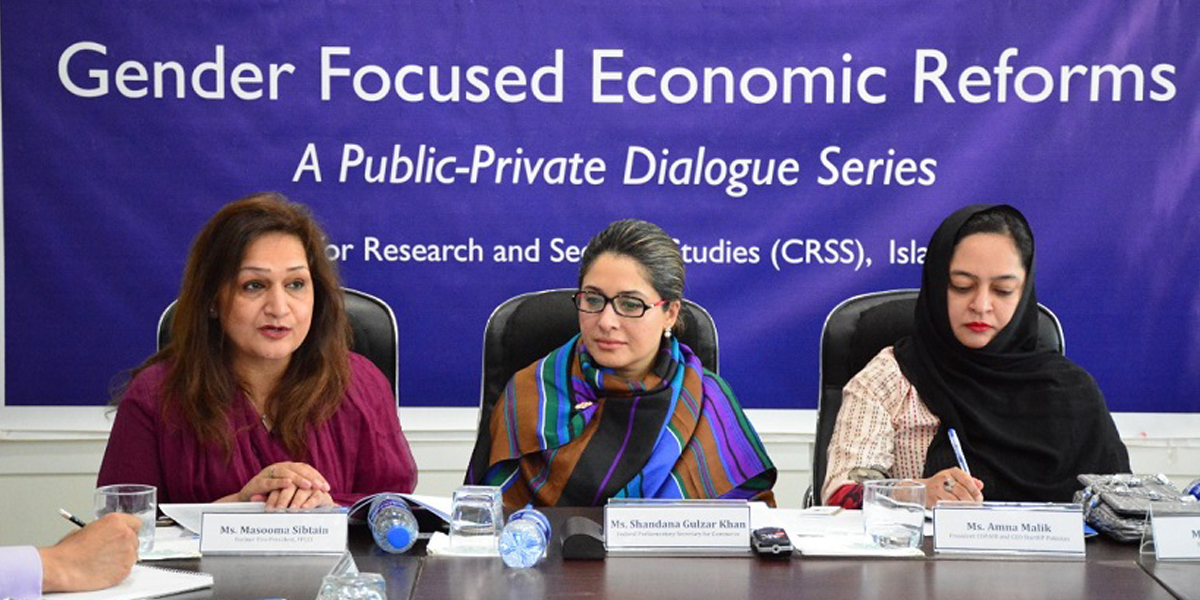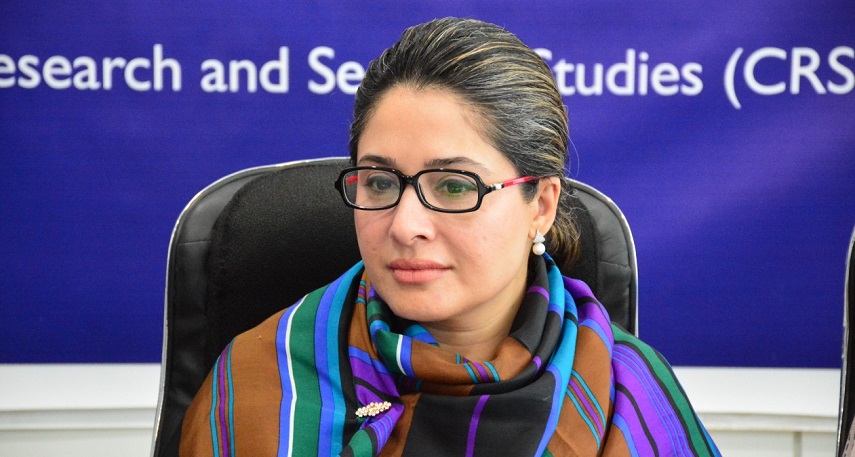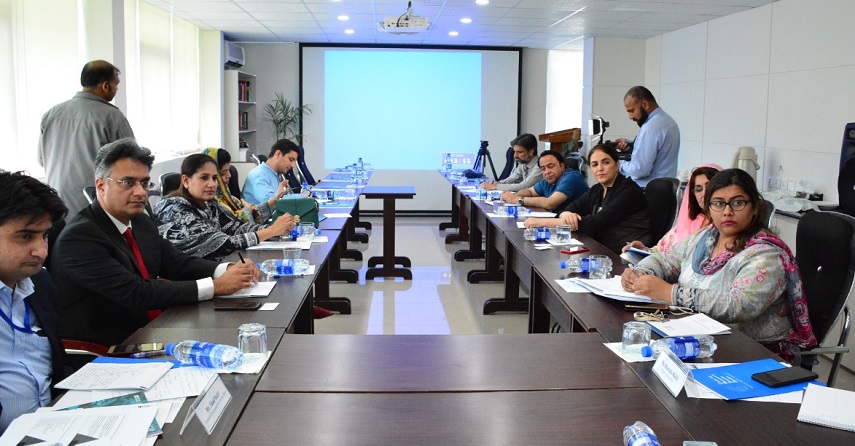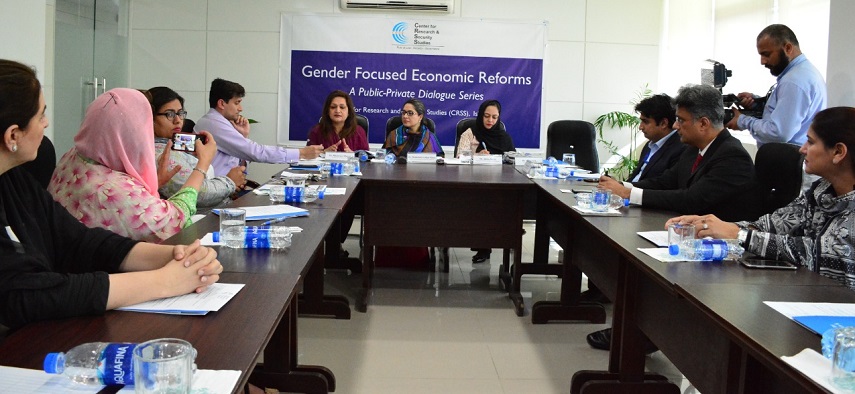Only by a vibrant private sector and a conducive working environment for them can enhance the business activity in the country. Pakistan’s yearly fall in the figure of exporters is almost 1% which also carries a proportionate effect on the women exporters. Pakistan’s exports reduced from 25 to 20 billion in the last 5 years due to coercive tariff policy in the past. However, the new tariff policy is hoped to be more friendly and promote exports growth.
These were the remarks made by the Parliamentary Secretary for Commerce, Ms. Shandana Gulzar Khan during the Public-Private Dialogue on Gender Focused Economic Reforms, held at Center for Research and Security Studies (CRSS), Islamabad on May 02, 2019. The event was also participated by the Parliamentary Secretary for National History and Literary Heritage, Ms. Ghazala Saifi and several private sector representatives along with the representatives of SMEDA and civil society.
She said that in domestic commerce, unfortunately the big industries have found their captive audiences but Micro, Small and Medium Enterprises (MSMEs) face problem. We are inviting investment in Pakistan – mainly from Singapore – in MSMEs where Singapore intends to develop the special economic zones established in the provinces.
Overcoming the major road blocks; especially addressing elite capture is crucial for the future of Pakistan’s economic stability. The indiscriminate accountability is critical to uphold rule of law where everyone – regardless of socio-political or economic background – should be given equal opportunities for social and economic inclusion and mobility. There is dire need to address the poor-rich divide to ameliorate the economic inequality.
Women in Pakistan have a limited access to the power corridors due the limited women representation. Gender focused economic reforms and inclusive legislation require knowledge and thoughtful consideration of the issues that concern the businesswomen and the aspiring entrepreneurs. Women cannot be treated as Children of a Lesser God.
The purpose of commerce ministry to also ensure ease of doing business and improve women’s access to market and ensure they – even those who want to work from home – have ways to make their ends meet.
The incumbent government of Pakistan Tehreek-e-Insaaf (PTI) has merged ministries of commerce, industries and production, and the Board of Investment (BoI) to fuse and integrate existing institutions at the federal level to boost efficacy of policy reforms. The government is establishing National Competitiveness Council (NCC), having relevant federal, provincial and private sector representations with a dedicated secretariat attached to the Prime Minister’s Office. The aim of integrating the ministries is to foster design of policies and implementation of programmes to ensure effective service delivery. Like the idea of National Competitiveness




